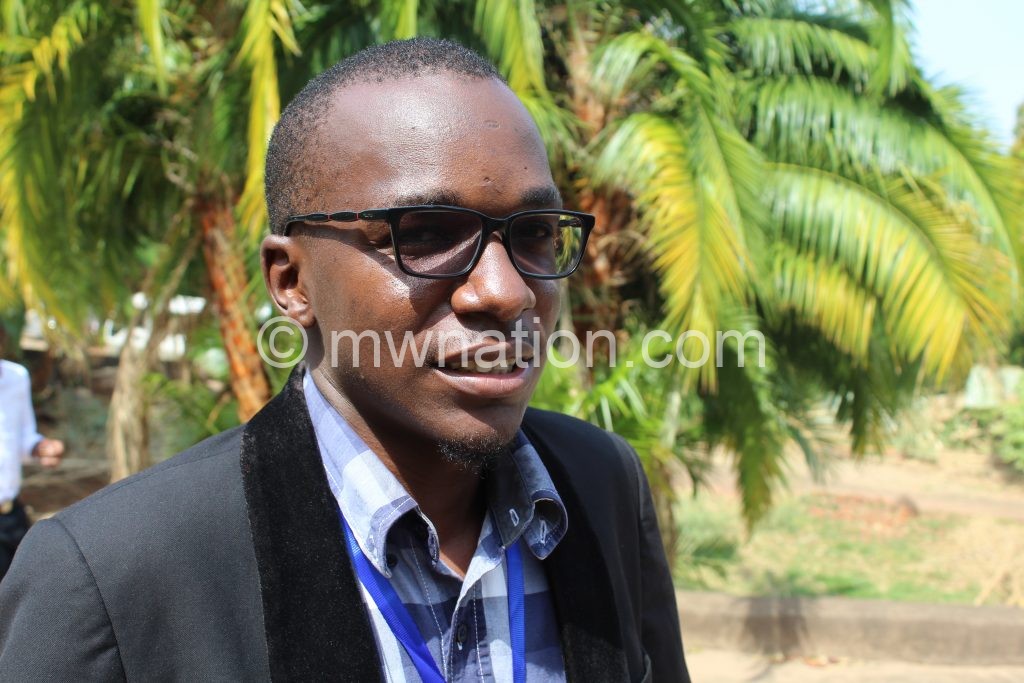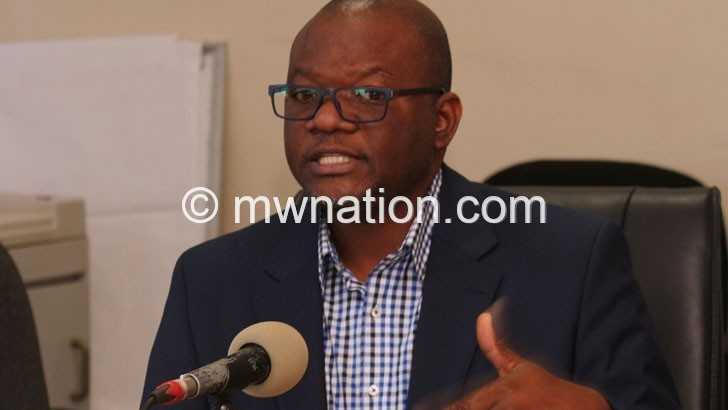ACB, DPP armed to bite
Increased allocations of about 30 percent to key crime-busting and governance institutions in the 2020/2021 proposed financial plan, signal the Tonse Alliance’s resolve to speed up investigations and prosecutions of corruption and fraud cases in its quest to clear the rubble.
The increase in the budget statement Minister of Finance Felix Mlusu presented demonstrated a clear departure in priorities as the previous Democratic Progressive Party (DPP)’s botched national budget in June this year, had drastically reduced funding to the key institutions such as the Anti-Corruption Bureau (ACB).

In the June budget presented by then minister of finance Joseph Mwanamvekha, ACB had a cut of about K320 million from its revised allocation in the mid-year budget review of 2019/20.
The office of the Director for Public Prosecutions (DPP) had suffered a K10 million cut from its already low budget.
But in the maiden Tonse Alliance proposed national budget unveiled on Friday the ACB, DPP and the Financial Intelligence Authority (FIA) have all received a financial boost of over 30 percent – from last budget – at a time when the institutions have an increased workload.
ACB has an allocation of about K5.2 billion from K3.7 billion in the 2019/2020 financial year —which represents 39 percent increase. The DPP has received K1.8 billion against K1.3 billion in the last fiscal year (42 percent). FIA has its budget move from K917 million to K1.1 billion (31 percent).

But governance commentator, Makhumbo Munthali said it is not surprising that there is an increase in allocation to these governance institutions as the new government would want to be seen to be serious about governance and the rule of law.
He said it is too early to celebrate: “This is commendable but we need to wait and see what will happen in future. It will be important to see how future allocations will be handled. For now I see that there is political excitement to have the budget aligned to popular needs”.
ACB director Reyneck Matemba said the proposed allocation, if approved, is a big push to the bureau’s operations—which, previously, were affected by limited funding.
He further appealed to government to ensure that there is timely disbursement of funds allocated and that the ACB should have 30 percent of its monthly allocation given in advance for speedy handling of cases.
Matemba said this is one reform area they have proposed to Vice-President Saulos Chilima who is leading the public reform agenda.
“The current arrangement requires that we request funding from the Accountant General and we explain the reasons for such requisition – this has a potential risk of leaking of information on our investigation.
“Sometimes we get information and we need to act as soon as possible – but with funding procedures we are forced to use personal resources. So we hope this will be sorted out,” he explained in a telephone interview yesterday.
Weighing in on the matter, Munthali said delayed disbursement is a common challenge across the public service, adding that this is one area that the reforms should focus on. He said there is need to guarantee the ACB operational independence as soon as possible for it to effectively execute its mandate.
“Almost all public institutions complain about delayed disbursement of funds except State residences and the presidency I guess. But this is one area the reforms should consider. The increased allocation has no meaning if disbursement challenges persist,” argued Munthali.
As of June this year according to the programme- based budget document – ACB had 120 cases to investigate and half of these were completed; 45 under prosecution and only 12 had prosecution completed. With the change of government in June this year – there are more issues emerging which substantially increase the bureau’s workload.
According to Matemba, the bureau is in a process of recruiting more officers to beef up its investigation, prosecution and corruption prevention teams.
A source indicated that the bureau survives on 13 prosecutors and less than 30 investigators spread across its offices in Zomba, Blantyre, Lilongwe and Mzuzu. The bureau, in most cases, has been spending money hiring private lawyers to help with prosecution.
“A large part of our budget is spent on rentals. We have a plan to construct our own complex in Lilongwe to cut down on costs. I cannot say how much we spend on rentals but it is a substantial amount,” said the ACB boss.
The DPP works closely with the ACB. Budget documents indicated that as of June this year, the DPP prosecuted 1 195 cases at the end of the third quarter out of the annual target of 1 300; they completed 19 cases of crimes against persons with albinism of the remaining 47, which were submitted for prosecution and attended to over 90 percent of appeals, bail applications and confirmation of cases.
Both the Legal Aid Bureau and Office of the Ombudsman have also witnessed an increase in allocation.
The Malawi Human Rights Commission (MHRC), a body expected to champion implementation of the Access to Information law, has suffered a drop in funding.
In the 2019/2020 budget, MHRC had K1.1 billion to its vote yet in the new budget – it has an allocation of K36 million less what it got in the previous financial year. The commission’s chairperson Reverend Patrick Semphere asked for more time before responding to whether the allocation factors in the implementation of the much awaited Access to Information law.
Munthali said the increased allocation to some governance institutions is a signal of commitment to strengthen the institutions. He observed there is expected improvement in case management and handling to inspire confidence.
Human Rights Defenders Coalition chairperson Gift Trapence said the increased allocations were a positive step and that the concerned governance institutions will have no excuse for failing to perform.
Trapence said looking at the magnitude of cases, it would be prudent for government to facilitate creation of specialised courts focusing on financial crimes and corruption.
“Sometimes cases take for ever because the courts are overwhelmed. So, we think having special courts to handle these type of cases would be helpful. It does not help to have cases go on for a long period – it defeats the purpose of justice,” said Trapence.





